Sleeping in a tent
.jpeg)
Have you ever slept in a tent into the wild? A fresh, warm wind, a million stars over your head, a great sense of freedom - this experience may be so wonderful that you will never want to stay in a hotel again, but… if you don't prepare well for it, you won't close your eyes all night long. So how do you make the night in the tent a fabulous experience, not a nightmare? I'm here to help and give you some basic tips.
Find the right place
Searching for a suitable place should start one hour before sunset when we have the appropriate experience, or two hours before sunset when we are just starting our adventure with camping. Time is needed to make the appropriate preparations, which I will describe in the following points, but also because it is sometimes difficult to find a good place and you need to look around, sometimes walk an extra kilometer or two.
The ideal place will not be on the top of a mountain or a hill, neither down, below ground level. When we are in a hollow, on a rainy night it may turn out that water has flooded our tent and everything we have in it. On the hill, we are exposed to the wind, more visible, and when our tent is the highest point in the area, we can additionally be hit by lightning. It would seem that hitting the middle of the storm is almost impossible, but believe me - it happens, sometimes quite unexpectedly.
Check the weather forecast and find out which side the wind is blowing from. If the breeze is strong, it is worth finding a place that will protect us. Under no circumstances should you put up a tent under any object that may fall on you (right under a tree, near a slope from which stones may roll onto you, etc.).
The tent should be put up in a flat area. If you install it at an angle, the sleeping comfort will be much lower. However, if you have no other choice, it is better to go to sleep with your head slightly above and your feet below, instead of the other way around.
Avoid other people, try to move away from nearby towns as much as possible. In critical situations, when we have not managed to distance ourselves from people on time, it is worth doing the opposite. It happened to me that I was forced to sleep in the city park, but such situations are actually a guaranteed restless night. If you did not manage to leave the town, it is better to knock on someone's door and ask for permission to spend the night in the tent in the backyard. The host will feel obliged to ensure our safety and a fence will provide security.
Insects
A fairly common mistake made by people who are just starting their adventure with sleeping in nature is a fast check of the place to make sure it cannot be noticed from the street/patch, without a thorough inspection of the ground. Even if the site is sheltered from winds, away from people, and seems to be calm, the ground should be carefully inspected. If you lay down near the anthill or directly on the anthill, your night will be terribly persistent. You should also avoid termites, spiders (especially if there are poisonous spiders sleeping in small burrows underground in the region where you spend the night), snakes, and other animals that could harm you.
Many people wrongly fear when traveling that they will be attacked by a puma, tiger, wolf, or bear. In fact, the most dangerous animals are much smaller - they are mosquitoes that spread various diseases, ticks, and spiders. Remember not to leave the door to the tent opened, even for a moment. You can use a mosquito net door to increase air circulation, but keep it closed so that no dangerous animal can get inside.
Always keep your luggage inside, but shoes may be an exception. If you don't like keeping your shoes in a tent, I understand it very well. I, too, prefer to keep it outside. Remember, however, that during the night various creatures can enter your shoes, so before you put them on your feet in the morning, hit one shoe against the other vigorously several times. If something is actually living in them, they will try to evacuate.
Stones and spikes
You have checked the selected space for various insects and did not find any. What now? Can you set up your tent already? Not so fast. First, make sure there are no stones underneath, and if they are, remove them from the ground. Even if it seems to you that the stone is small and will not be in your way, or that it is in your legs, so you probably won't feel it - you are wrong. Stones are probably the most common cause of uncomfortable sleep in a tent.
Additionally, check the soil for any vegetation potentially dangerous to your sleep comfort. Naturally, it is not about sleeping on the ground and removing all vegetation before going to sleep - grass, dandelions, or clover should remain untouched. Leave the flora as intact as possible, but if the ground is full of thorny vines, sharp branches, and small cacti - remove them. Not only do you risk feeling these spikes on your body at night, but you can also damage your tent. The base of tents is usually highly water-resistant, but microdamage can significantly reduce it.
Food
I mentioned earlier that small animals, i.e. insects, are much more dangerous than large animals. This is true - pumas, wolves, or bears, as a rule, avoid humans and all confrontations, and as they have a very keen sense of smell, they know about our presence much earlier than we learn about them. As a rule, an animal can only attack for two reasons - when it is extremely hungry or when it is scared.
You can be sure that no animal will treat you as a potential snack and attack you out of hunger. Well, unless you're pitching a tent in Svalbard, in the middle of an ice-desert, and you run into a polar bear, but that's a completely different matter (Svalbard law requires you to carry a gun on your out-of-town trips, so you won't be completely defenseless then). However, if you ate dinner before going to bed and threw the leftover food behind you; if you did not close the food bag well, you can expect guests at night. When a fox, roe deer, or badger visits the camp, you have nothing to fear, but a wolf, bear, boar, or puma, frightened by your presence, can attack and lead to a catastrophe.
To avoid such situations, eat your meals away from the camp, or - if you eat close to the tent, make sure you don't leave any leftovers. Keep the food in a tightly closed bag, hung on a tree or larger bush, a few hundred meters from the tent. Hanging the bag high will protect it from smaller animals and some insects.
Several hundred meters away from the camp in another direction, you should dig a latrine. If you are on the move every day and you do not intend to sleep in one place any longer, if you do not plan to take care of some physiological needs during your stay in the wild, digging the latrine is unnecessary. Otherwise, dig a deep hole, preferably near a tree or larger bush that you can hold onto while you do your business. Every time you do your job, cover the excrement with the soil and bury everything properly before you leave the camp.
A latrine at an appropriate distance increases the comfort of camping, and burying it before leaving the spot protects the animals from the spread of parasites. It is also an element of a basic culture that requires us to leave the place in the state in which we came to it.
Sounds
For the first few nights, every little noise can scare you. Nature is not quiet, the night has its soundtrack - the rustle of leaves, broken branches, insects, birds, and animals that may move somewhere in the distance - all this can be perfectly audible and can be disturbing. Completely unnecessary. As we stated earlier, the risk of an animal visiting the camp is small, because they fear humans much more than humans are afraid of them. If you are afraid of thieves, I hasten to reassure you that it is practically impossible to be robbed into the wild. If you have found a place away from the buildings, sheltered from the view of others, you will certainly not encounter anyone in the area. Think for yourself, how many times have you heard about someone who, in the middle of the night, set off on a journey a few kilometers from the city, who went out of the way and seeing the tent and not knowing who he would encounter in it, decided to rob travelers instead of walking away? Zero? Exactly.
More for psychological comfort than for safety, I can recommend keeping a small pocket knife next to you. It certainly will calm you down. I also happened to travel with a dog that, sleeping with us in a tent, can warn us of the impending danger before we hear it ourselves. A loud bark coming out of the darkness will surely scare away all potential robbers. The ones you definitely won't meet, I promise.
Be ready for a change in weather
The habit of checking the weather before setting up the tent is very good and can help us prepare for potentially unpleasant conditions. However, weather forecasts can never be taken for granted. It's better to always be prepared for any circumstances. Always keep the flysheet at hand. It can be useful in the middle of the night to protect us from unexpected rain, strong gusts of wind, or even the most ordinary sudden drop in temperature. Keep the most important things, such as documents or electronic equipment, in special, waterproof bags in case your tent is flooded.
It is good to know before falling asleep where the nearest town is, just in case we need to ask for help in critical situations. If there is no one within a dozen of kilometers, at least remember where the nearest hard roof shelter (cave, bus stop) is located. You may need them, for example, in case of heavy hailstorms
Take care of thermal comfort
There are things that are not worth saving on, and these certainly include a tent and a sleeping bag. Remember that sleeping bags differ significantly from each other. If you travel around the world, you will not use the same sleeping bag in the Norwegian Fjords and around Barcelona.
The sleeping mat is equally important. Choose one with technical foil insulation on one side and the appropriate thickness.
Finally, buy thermal underwear. Sleeping naked in a tent in the vast majority of cases is impossible because of the temperatures while sleeping in the clothes we have traveled in before is unhygienic, which you surely know. The solution is comfortable thermal underwear - a long-sleeved shirt and close-fitting underpants.
These are all the tips I have prepared for you today. If you want to add something from yourself, feel free to write a comment.
Thank you for reading,
@papi.mati
Check my weekly activity here
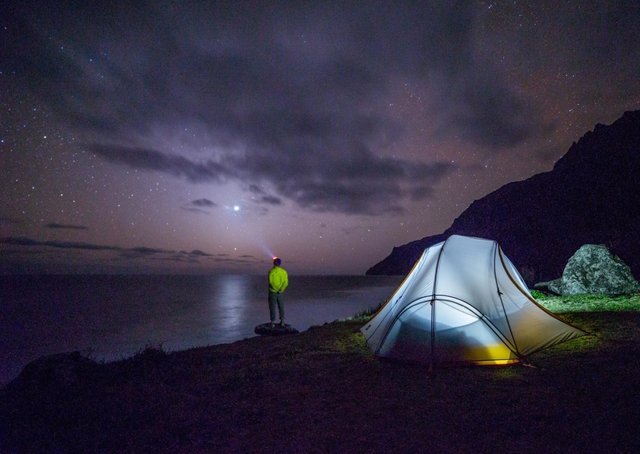
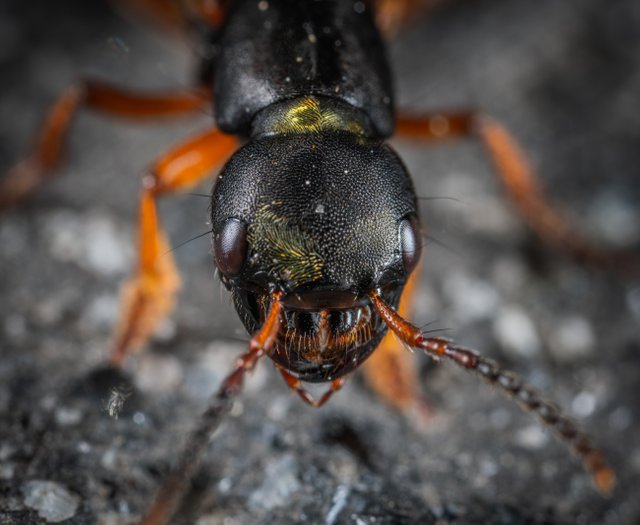
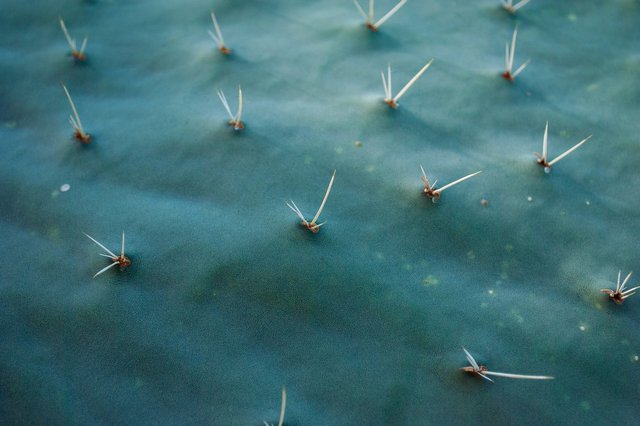
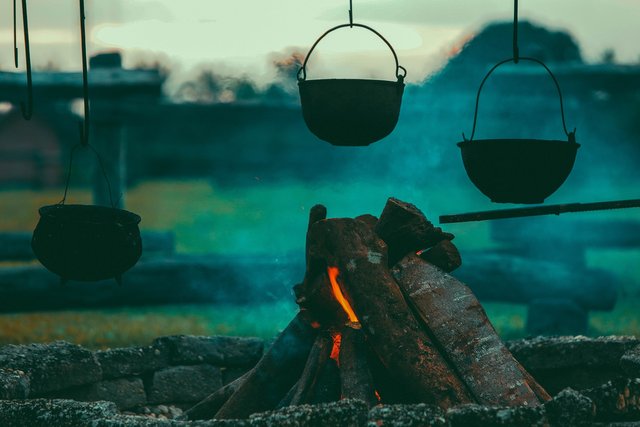
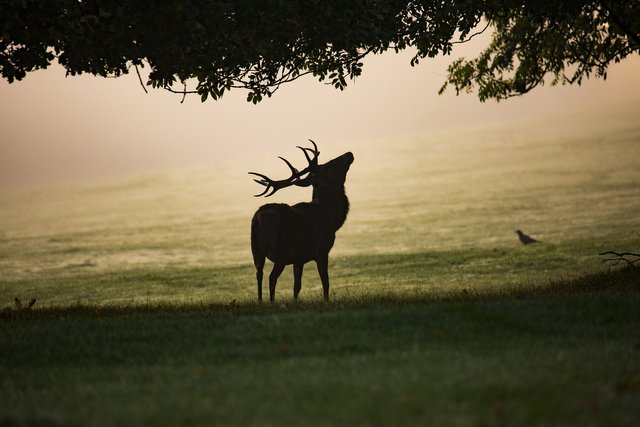
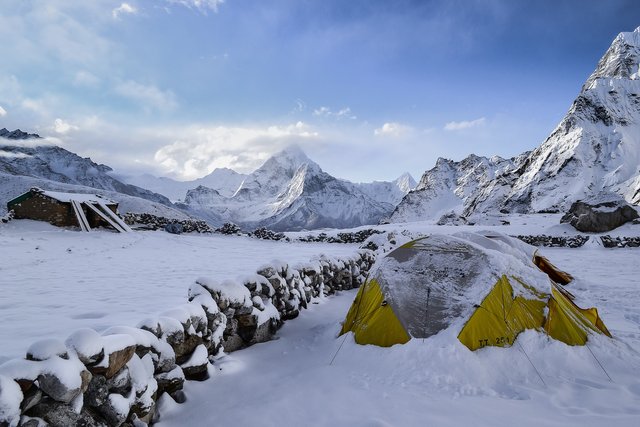
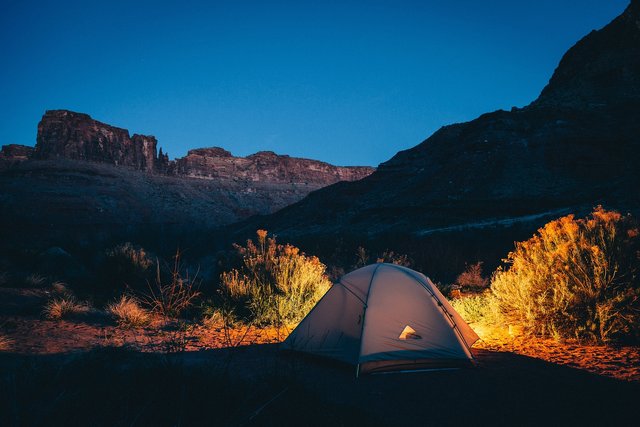
Electronic-terrorism, voice to skull and neuro monitoring on Hive and Steem. You can ignore this, but your going to wish you didnt soon. This is happening whether you believe it or not. https://steemit.com/fyrstikken/@sqube/3dhq8e-i-am-the-only-motherfucker-on-the-internet-pointing-to-a-direct-source-for-voice-to-skull-electronic-terrorism
Downvoting a post can decrease pending rewards and make it less visible. Common reasons:
Submit
Hola @papi.mati Gracias por compartir toda la información, realmente no es fácil levantar una carpa y acampar hay que tener en cuenta todos los detalles para pasar una noche agradable.
Downvoting a post can decrease pending rewards and make it less visible. Common reasons:
Submit
thank you for your comment!
There may be many things we have to remember about but it's worth trying. Worst case scenario we will not sleep well for a night or two, but best case scenario we will gain unforgettable memories :)
Downvoting a post can decrease pending rewards and make it less visible. Common reasons:
Submit
Excelente presentación sobre el arte de acampar.
Es sumamente importante tener en cuenta estos consejos antes de decidir acampar.
Desde la elección del terreno adecuado, el equipo necesario, la distribución de las áreas, la comida, elaboración del fuego y el cuidado y control del mismo, los animales que viven en el área, tantos detalles que muchos no evalúan para poder pasar una experiencia formidable de contacto con la naturaleza.
SLPS
Downvoting a post can decrease pending rewards and make it less visible. Common reasons:
Submit
Thank you for your comment, I'm glad you liked my publication. I agree, many things have to be considered before sleeping into the wild, but it's definitely worth the effort :)
Downvoting a post can decrease pending rewards and make it less visible. Common reasons:
Submit
Totalmente amigo.
Cada noche de campamaneto es genial y ninguna es iguala otra, aunque sean muy parecidas.
En mi experiencia cómo scout, he acumulado más de 300 noches de campamento y cada vez que tengo la oportunidad de sumar una más, no lo pienso dos veces.
Feliz campamento hermano.
Totally friend.
Every night of campamaneto is great and none is the same as another, even if they are very similar.
In my experience as a scout, I have accumulated more than 300 nights of camping and every time I have the opportunity to add one more, I do not think twice.
Happy camping brother.
Downvoting a post can decrease pending rewards and make it less visible. Common reasons:
Submit
Estimado amigo, debe recordar el apoyo a la comunidad con la programación del 10 % de sus recompensas para la cuenta curadora @hive-181136
Podría también apoyar a la comunidad con dicho 10 % cuando cobre su recompensa. y si desea apoyar más a la comunidad puede delegar a nombre de @hive-181136.
Downvoting a post can decrease pending rewards and make it less visible. Common reasons:
Submit
Ok, sure. I'll be making 10% for scouts.
On Sunday I'm also planning to make a delegation to your community.
Downvoting a post can decrease pending rewards and make it less visible. Common reasons:
Submit
Excelente información sobre4 cómo acampar, no sabía que había que tomar en vcuenta tantos detalles, ahora entiendo por qué le apasiona tanto a mi esposo.
Saludos y Bendiciones-.
SLPS
Downvoting a post can decrease pending rewards and make it less visible. Common reasons:
Submit
Thank you very much for you comment. I'm glad you liked my post! All the best for you!
Downvoting a post can decrease pending rewards and make it less visible. Common reasons:
Submit